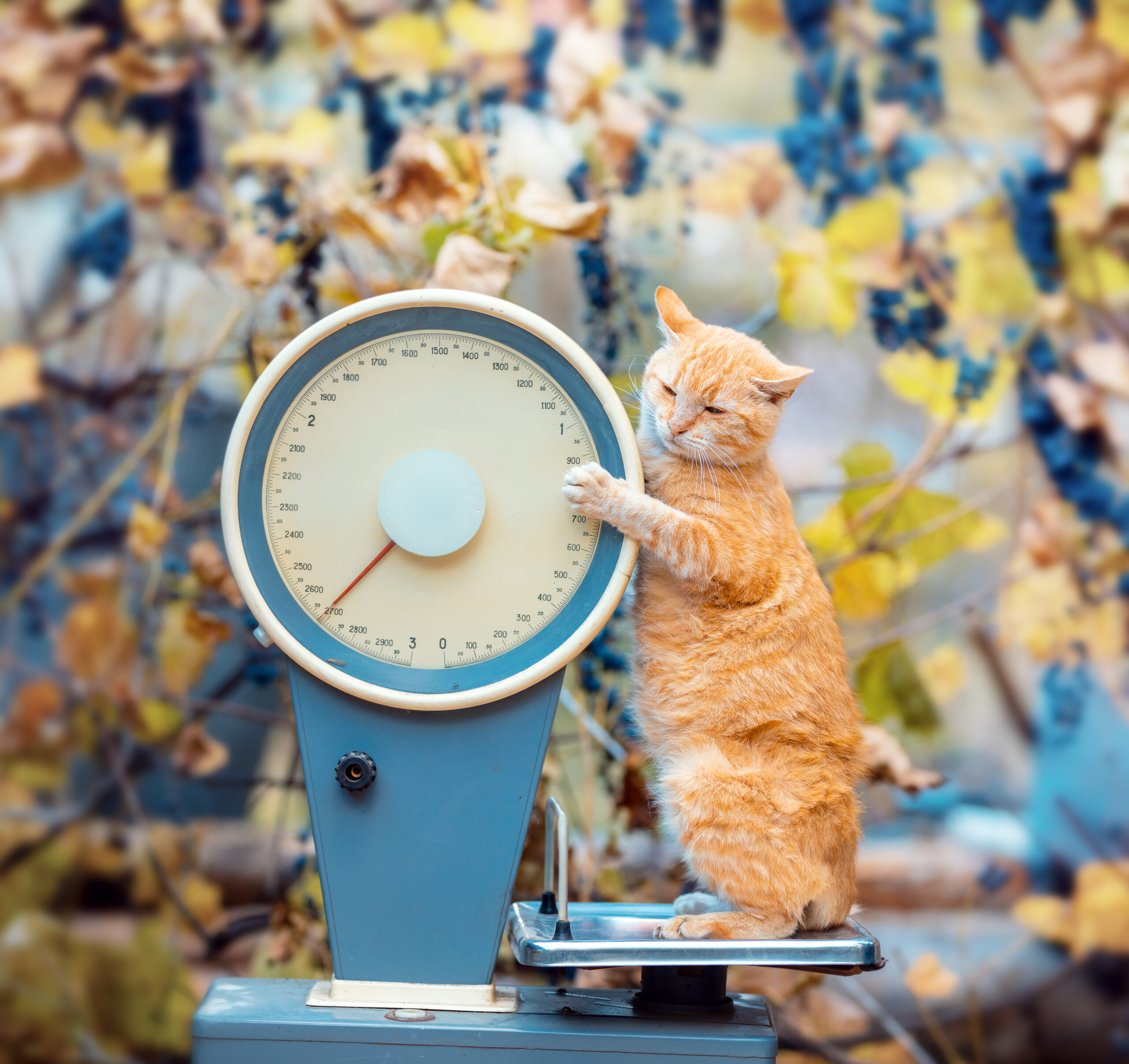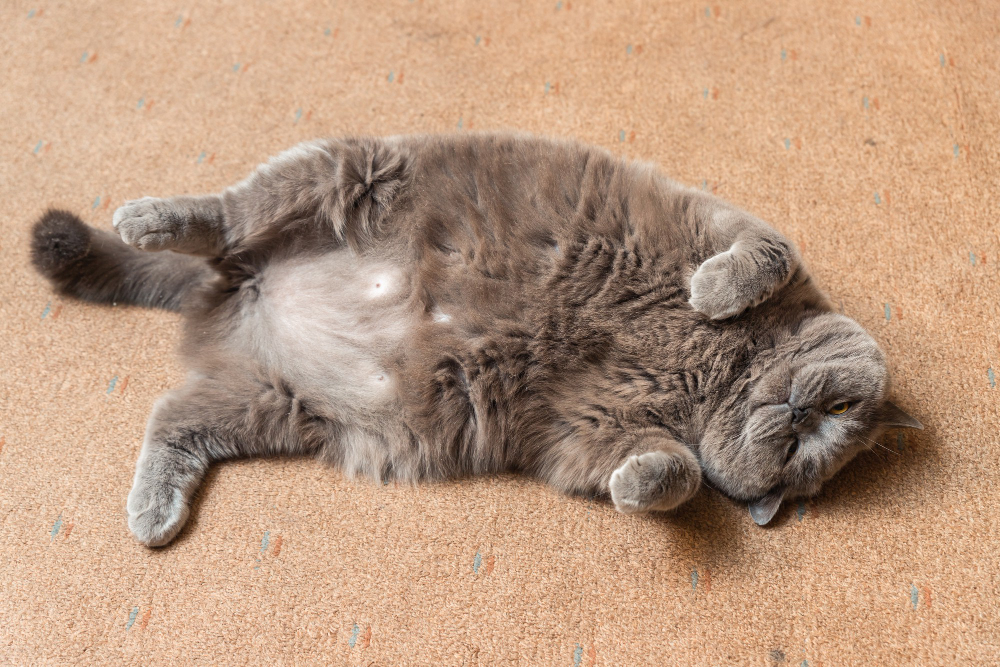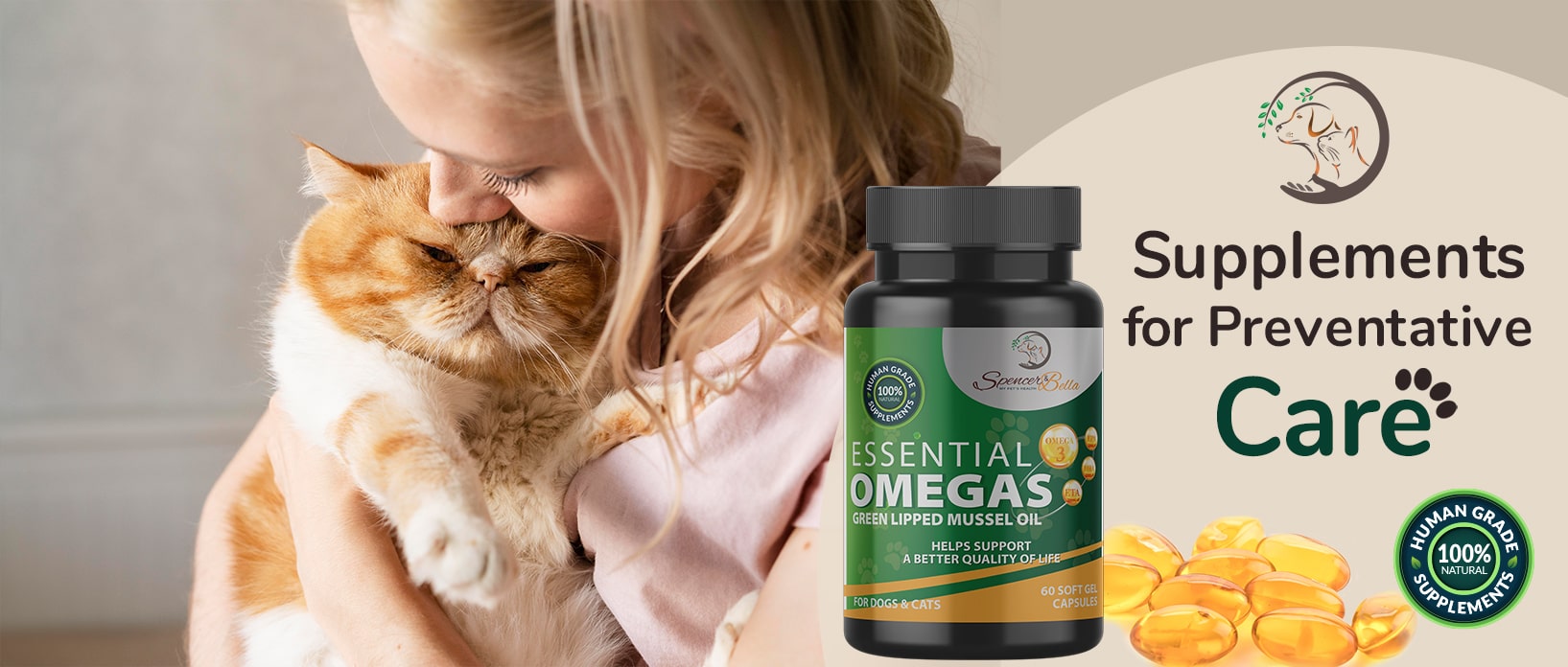Obesity affects about 50% of all cats. The weight gain is due to increased body fat. If your cat is overweight there is a direct correlation to negative health conditions like heart disease, arthritis, diabetes, and bladder cancer. Usually what causes this additional body fat is a lack of exercise and overeating. Health Risks of Obesity in cats is more prevalent as they age. Just as with people, as we get older, we don’t need as much food. Yet we continue to eat the same amounts as when we were young. The same goes for exercise. When we were young, we burned a lot more calories due to being more active. Typically, in our older years, we don’t burn as many calories and if still eat the same quantities of food, we start storing the food not burned off which causes increased body fat.
Introduction
The less mobile your cat is the more likely there is a propensity to gain weight. Lazy cats that don’t get much exercise gain weight more easily than those that are active. When was the last time you saw a fat alley cat? Cats that live “in the wild” must find their food. As a predator, they are always hunting their prey and get plenty of exercises.
According to clinical studies, female cats are more likely to become overweight. Maybe overfeeding our furry friends is the cause or maybe we give them people food or table scraps. Both can cause excess weight gain.
Play a game with your cat. Instead of giving them a treat each time they come wanting more food, try hiding the treats around the house. They have a keen sense of smell and will start looking for them instinctively. Their mental reflexes will kick in and start looking for hidden treats. Keep them mobile.
There is a direct correlation between neutered and spayed cats having a lower metabolism and not needing as many calories. This causes a more sedentary lifestyle and suggests these cats are twice as likely to become overweight.
How do you tell if your cat is overweight?
Is my cat overweight?

All cats have an ideal weight for their size and breed. Your veterinarian will be able to tell you what this is and show you how to check that your cat is maintaining a healthy weight. Between checkups, place your hands on her side – are their ribs hard to feel or even impossible to feel? If so, she or he is likely overweight. You can also track your cat’s weight at home between checks at your veterinarian. Just hold your cat and step on the scale, then get back on the scale without holding your cat. Subtract the difference. That’s what your cat weighs.
If your cat is overweight, here are a few signs for you to follow:
- Can’t feel the ribs when you run your hands along your cat’s side
- The collar is too tight and needs to be loosened
- The slow movement in getting up or walking
- Has trouble breathing
- Sleeping more than usual
Here are a few things to consider when trying to improve your cat’s health. Try not to leave excess food in their bowls. Check the foods that you are giving your cat. Many have salt and fat in them. Granted, it improves the taste, but this typically leads to your pet eating more than needed. Try to avoid giving them people food or table scraps during or after your meals.
So, what’s next? How do I help my cat lose weight?
What do you feed your cat? Maybe the food should be changed to add more nutrients. Of course, more exercise will improve your pet’s health. But this should be gradual and not an overnight change. Think of yourself if you are overweight. It took months to put the weight on and you wouldn’t expect to lose it overnight if you started exercising immediately. Do it gradually so you both can enjoy the newfound energy level and vitality. Maybe start by trying to get your cat to play with a toy. Have her/him walk with you around the house or play the “follow the light” shining a flashlight on the floor or walls. That movement will begin to improve their fitness almost immediately.
We all want our pets to be healthy and live long happy lives. Keeping your cat’s weight under control is a great way to keep them around for a long time.
Supplements
If your cat is overweight there is a direct correlation to negative health conditions like heart disease, arthritis, diabetes, and bladder cancer. Sometimes a cat doesn’t display symptoms of discomfort due to disease or ailments. Diabetes, arthritis, heart disease, and even labored breathing can be caused by cats being overweight. While you are changing your cat’s eating and exercise routine we recommend you supplement their diets with our two supplements Cellular BOOST and Essential OMEGAS.





